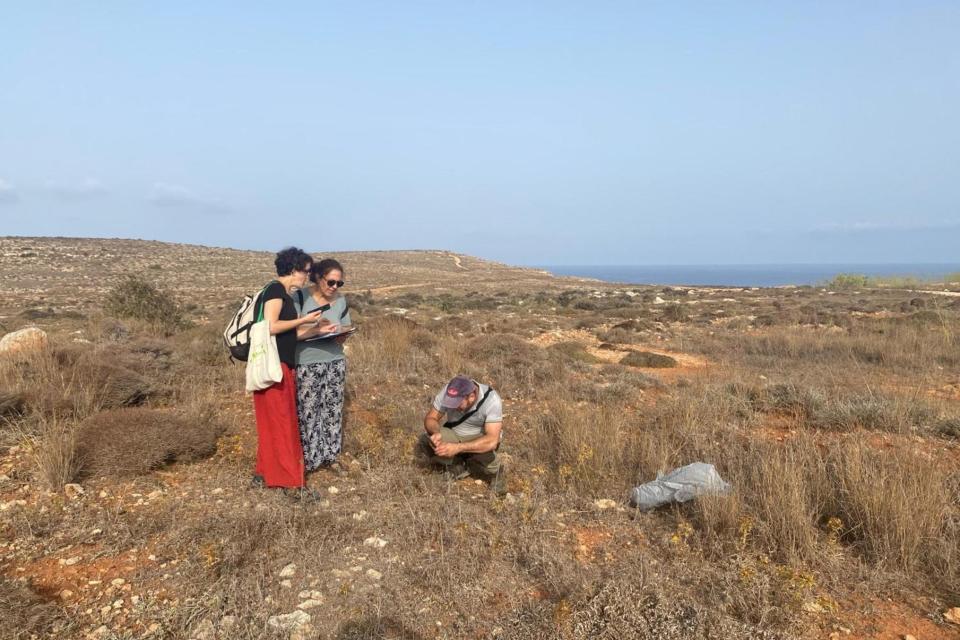What is citizen science and why is it useful?
Science is not just for professionals in labs. It's something everyone can do

Citizen science is a collaborative approach to scientific research that engages individuals, known as "citizen scientists", in scientific projects.
It promotes inclusivity, involving people from diverse backgrounds and skill levels in the scientific process. Citizen Science exemplifies the idea that science is not just for professionals in labs but is a pursuit open to anyone with curiosity and a desire to contribute to the greater scientific knowledge.
One of Malta's earliest citizen science initiatives can be traced back to January 1909, after the devastating magnitude 7.1 earthquake struck Messina, Sicily and Calabria on December 28.
 The questionnaire that was distributed in the boys' school on 18th January 1909 following the devastating earthquake on 28th December 1908 and the filled-in response. Photo: University of Malta
The questionnaire that was distributed in the boys' school on 18th January 1909 following the devastating earthquake on 28th December 1908 and the filled-in response. Photo: University of MaltaThis quake, claiming over 60,000 lives, also triggered a massive tsunami that reached Malta. Local schools distributed questionnaires, requesting students to share their observations and experiences.
This campaign yielded crucial data, including the time and wave height at Msida Creek during the tsunami. Such information proves invaluable, especially in the context of infrequent events like tsunamis.
Malta now hosts numerous Citizen Science initiatives, offering diverse opportunities for active engagement across various disciplines. These initiatives cover fields like school air quality assessment, wild orchid tracking and identification of terrestrial and marine species. They also involve reporting felt earthquakes, alien species and beach microplastics.
The Malta Chamber of Scientists also runs several citizen science projects, such as the recently launched Project Poseidon funded by Impetus. These efforts enhance our understanding of Malta's environment and empower citizens to contribute to scientific progress, fostering a stronger connection between the community and the scientific world.
 Daniel Mangion, Danil Golomovzy, Martina Mifsud and Matthew Calleja discussing their roles as Citizen Scientists in various campaigns. Photo: Arthur Lamoliere
Daniel Mangion, Danil Golomovzy, Martina Mifsud and Matthew Calleja discussing their roles as Citizen Scientists in various campaigns. Photo: Arthur LamoliereSimone Cutajar, the Citizen Science Ambassador for Malta, sums it up: "Citizen Science is science with, for and by the people. It bridges society and science, fostering curiosity, inspiring future scientists and democratising knowledge."
A recent event at the University of Malta in conjunction with the Malta Chamber of Scientists, brought together scientists from various fields using citizen-collected data for research. Researchers from Geosciences, Earth Systems Institute and the Environmental Resource Authority presented local Citizen Science campaigns. Citizen Science volunteers shared their motivations and discussed challenges in a Q&A session.
 Setting up one of the pan traps as part of ERA’s MPOMS Citizen Science campaign. Photo: Yanika Farrugia
Setting up one of the pan traps as part of ERA’s MPOMS Citizen Science campaign. Photo: Yanika FarrugiaAn open-floor discussion emphasised enhancing future campaigns from a technological perspective, finding volunteers, addressing best practices, ethical issues, publications and future meetings. A dedicated forum for Citizen Science campaign managers and volunteers will be set up as a first step.
This article is brought to you by the Malta Chamber of Scientists https://mcs.org.mt.